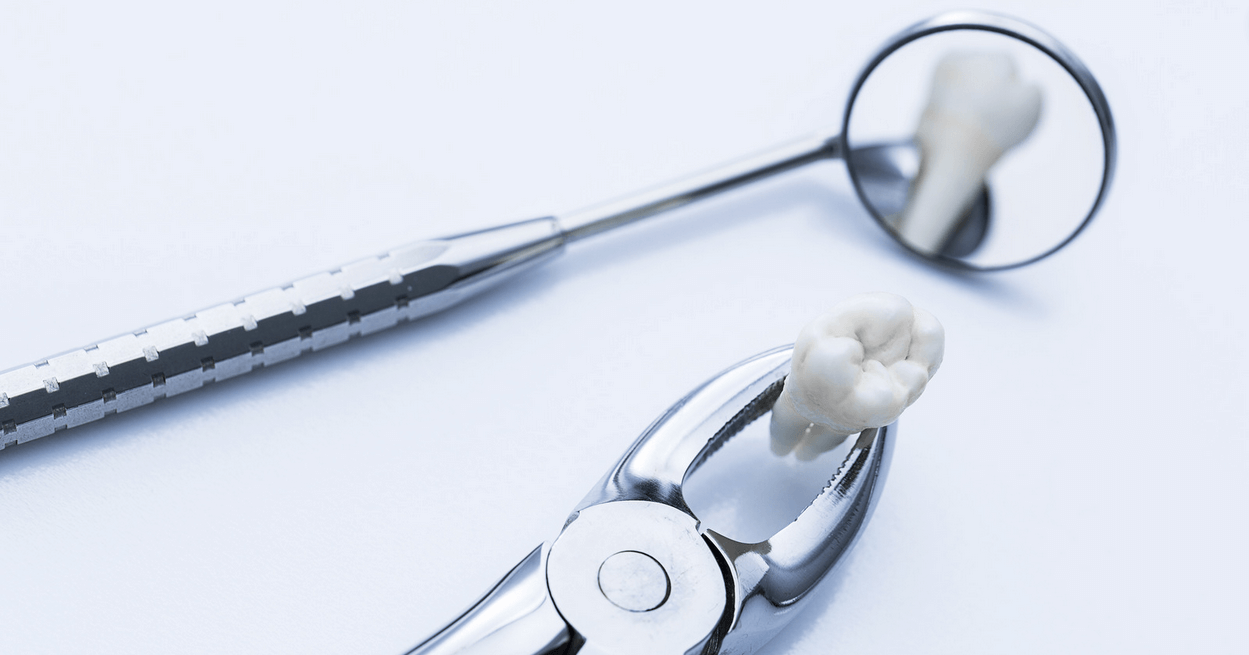
What are Wisdom Teeth, and Do They Need to be Removed?



Wisdom teeth, the relics of our evolutionary past, have long been subjects of curiosity and, often, dental concern. Nestled at the very back of our mouths, these third molars typically appear in late adolescence or early adulthood, a time historically known as the "age of wisdom"—hence their name. Originally designed to help our ancestors grind down a diet of tough and raw foods, wisdom teeth are now somewhat redundant in our world of cutlery and cooking. This comprehensive guide explores the enigma surrounding wisdom teeth: why they're a part of our dental anatomy and the circumstances under which they may need to be removed. Delving into the evolutionary backstory and modern dental practices, we aim to address many patients' pressing questions: Are wisdom teeth mere evolutionary leftovers, or do they serve a purpose today? And in what situations is extraction the recommended course of action? Stay tuned as we chew over the facts, ensuring you're informed about your dental health and prepared to make the best decisions with your dentist.
Wisdom teeth are the most posterior molars on each side of the upper and lower jaws. They are the last to erupt into the mouth, usually emerging at an age when people are entering adulthood and gaining wisdom, which ostensibly gives these teeth their colloquial name. Unlike our other permanent teeth, which erupt in stages starting from around six years of age, wisdom teeth typically make their appearance much later.
Evolutionarily, wisdom teeth are believed to have been essential for our ancestors, who had a much tougher diet that consisted of raw plants and meat that required rigorous chewing. Over time, human diets have become easier to consume and less abrasive, and our jaws have also evolved to become smaller, rendering these third molars functionally obsolete in many cases. This anatomical change means there needs to be more room in the modern human jaw to accommodate these late-blooming molars.
While the timing can vary from person to person, wisdom teeth generally emerge between 17 and 25. Some individuals may see them earlier or later, and a few might never develop them. The late emergence of wisdom teeth can lead to a range of dental issues, as the jawbone has typically reached full physical maturity by this time, potentially leaving little space for these additional teeth to emerge properly.
Wisdom teeth, or third molars, are considered evolutionary holdovers from when our ancestors' diets consisted of raw meat, roots, and leaves—foods that required more serious chewing. These teeth emerged as a valuable asset for grinding down tough, fibrous plant material and uncooked meat, contributing significantly to their survival. Our forebears needed every molar they could get, including these "extra" sets of teeth, to cope with a diet quite abrasive to the tooth surface.
But as humans evolved, so did their eating habits. The invention of cooking and using tools for cutting and crushing food meant that the human diet softened significantly. Cooking changed the texture of food and improved its digestibility and nutritional value, reducing the need for such powerful chewing. Over time, these changes led to a gradual reduction in the human jaw size; however, the genetic instructions for growing wisdom teeth remained.
In contemporary times, wisdom teeth often do not align with the reduced space within the modern human jaw. This discrepancy can lead to various dental health issues, such as impaction, where a wisdom tooth does not fully erupt through the gum line. This mismatch between our evolved jaws and the persistent emergence of wisdom teeth underscores the exciting intersection between our evolutionary past and modern health. Dentists now routinely assess whether there is adequate space for wisdom teeth to emerge properly, considering extraction when they threaten a person's dental well-being. Therefore, while they once played a critical role in our ancestors' survival, wisdom teeth have now become a peculiar relic, and their extraction is a common rite of passage in modern dental care.
Impaction occurs when wisdom teeth fail to emerge correctly or are misaligned when they do break through the gum line. This is typically due to insufficient space in the jaw or the teeth growing at an awkward angle. In some instances, a wisdom tooth might only partially emerge, creating a flap of gum tissue that can trap food and lead to bacterial growth, or it may not emerge at all, remaining entirely encased within the jawbone.
Problematic wisdom teeth can present various symptoms, suggesting that a visit to the dentist might be necessary. Some of the common symptoms include:
Some of these symptoms may also indicate an infection called pericoronitis, which is common around partially erupted wisdom teeth.
The pressure from emerging wisdom teeth can sometimes cause a domino effect, displacing other teeth. As they push through limited space within the jaw, wisdom teeth can crowd existing teeth, disrupting the alignment and potentially undoing years of orthodontic work. This pressure can also create pockets between teeth, making them more susceptible to decay and gum disease.
Dentists typically recommend that individuals have their wisdom teeth evaluated in their mid- to late-teenage years. By this time, wisdom teeth may have begun to emerge, or X-rays can determine their position and growth trajectory. If necessary, the ideal age range for removal is usually between 16 and 19. During this period, the roots of the wisdom teeth are not yet fully developed, which generally makes the removal process easier and recovery quicker.
It may be time to consider having your wisdom teeth removed if you experience symptoms such as:
Recognizing these signs early can prevent more severe complications, making it essential to consult with your dentist if you experience any discomfort or changes in your dental health related to your wisdom teeth.
Regular dental check-ups are essential to monitor the development and growth of wisdom teeth. X-rays taken during these visits can reveal potential problems with wisdom teeth before they become symptomatic. Through preventative monitoring, your dentist can determine the appropriate time for removal, if necessary, and guide you through the decision-making process. This proactive approach is crucial to mitigating the risk of complications and ensuring the health of your teeth and gums in the long term.

The process of removing wisdom teeth begins with a consultation where your dentist or oral surgeon will discuss your symptoms, evaluate your oral health, and take a detailed medical history. During this appointment, imaging tests such as X-rays or CT scans are conducted to determine the wisdom teeth' position and plan for removal.
The surgery is usually done under local anesthesia, sedation, or general anesthesia, depending on the complexity of the case and the patient's comfort. The procedure involves making an incision in the gum to expose the tooth and bone, removing any bone that blocks access to the tooth root, and dividing the tooth into sections to minimize the amount of bone removed. Once the wisdom teeth are extracted, the site is cleaned, and the incisions are stitched, typically with stitches that dissolve over time.
During the procedure, patients should not feel any pain due to anesthesia. Postoperatively, once the anesthesia wears off, patients may experience swelling, bruising, and discomfort for a few days, which can be managed with pain medication as prescribed by the dentist. Ice packs can help reduce swelling, and patients are advised to rest and avoid strenuous activity.
After the surgery, recovery typically involves a soft or liquid diet, and care is taken to keep the extraction site clean. Patients should avoid smoking, spitting, or using a straw during the initial healing period as these actions could dislodge the blood clot that forms in the tooth socket, leading to a painful condition known as dry socket.
Many people feel anxious about wisdom teeth removal due to fear of pain, complications, and the surgery itself. It’s important to understand that while some discomfort is expected post-surgery, the procedure is standard, and complications are rare when performed by an experienced professional. Patients are also often relieved to find that removing wisdom teeth can prevent future dental problems, making the procedure beneficial in the long term. Clear communication with your dentist or oral surgeon can help address any fears or misconceptions and ensure you feel comfortable and informed.
While the removal of wisdom teeth is common, there are cases where these third molars can remain in the mouth without causing problems. Wisdom teeth do not need to be removed if they:
It's worth noting that keeping wisdom teeth requires regular monitoring to ensure they remain problem-free. Dentists sometimes advocate a "wait-and-see" approach, with periodic X-rays to detect potential changes or issues in the future.
Wisdom teeth play a complex role in dental health. While they may not always cause problems, understanding the potential complications they can bring is crucial in maintaining overall oral wellness. Timely recognition of symptoms that indicate the need for removal can prevent discomfort and serious dental issues. Additionally, cases where wisdom teeth grow without causing damage, exemplify that extraction is not a one-size-fits-all solution.
If you have concerns or questions regarding your wisdom teeth, it is crucial to consult with a dental professional. They can provide personalized advice based on a thorough oral health examination, including X-rays or scans. A dental professional will guide you through your options, whether it involves proactive removal or a watchful waiting approach.
Remember that each individual's dental health journey is unique. Your dentist is your best resource for making informed decisions about your wisdom teeth and overall dental care strategy. Stay proactive in your dental check-ups to ensure a healthy smile for years.

We look forward to meeting you! Call 780-760-3033, email info@newburydental.ca, or request an appointment online to set up your first visit. We’ll be in touch soon!